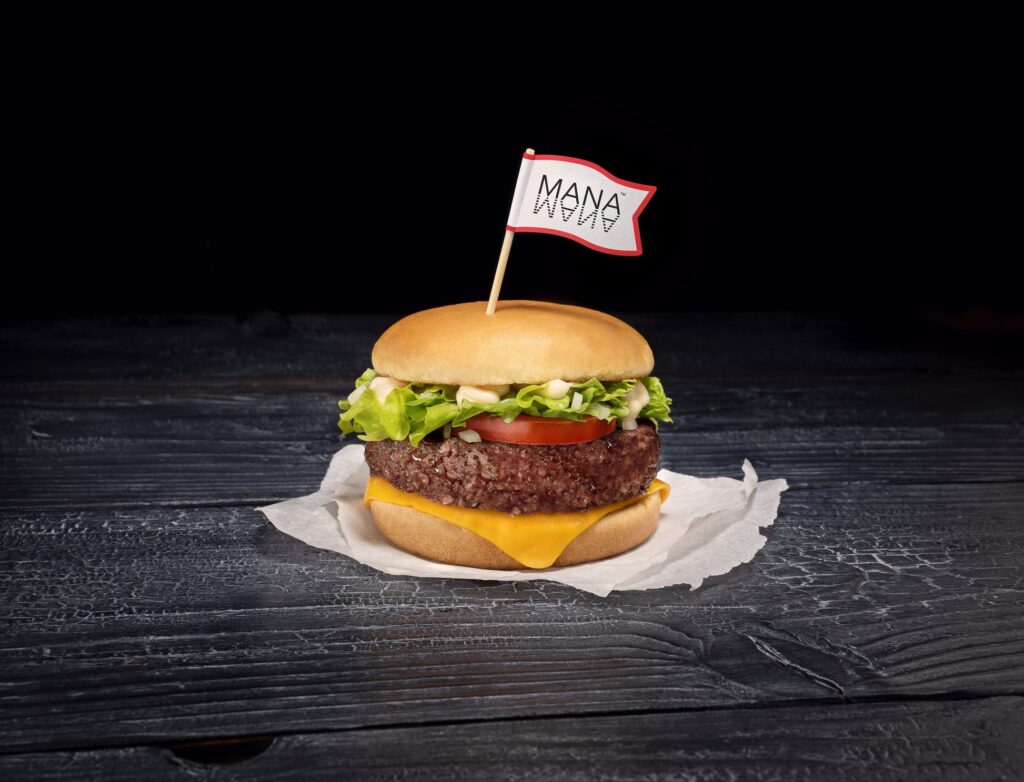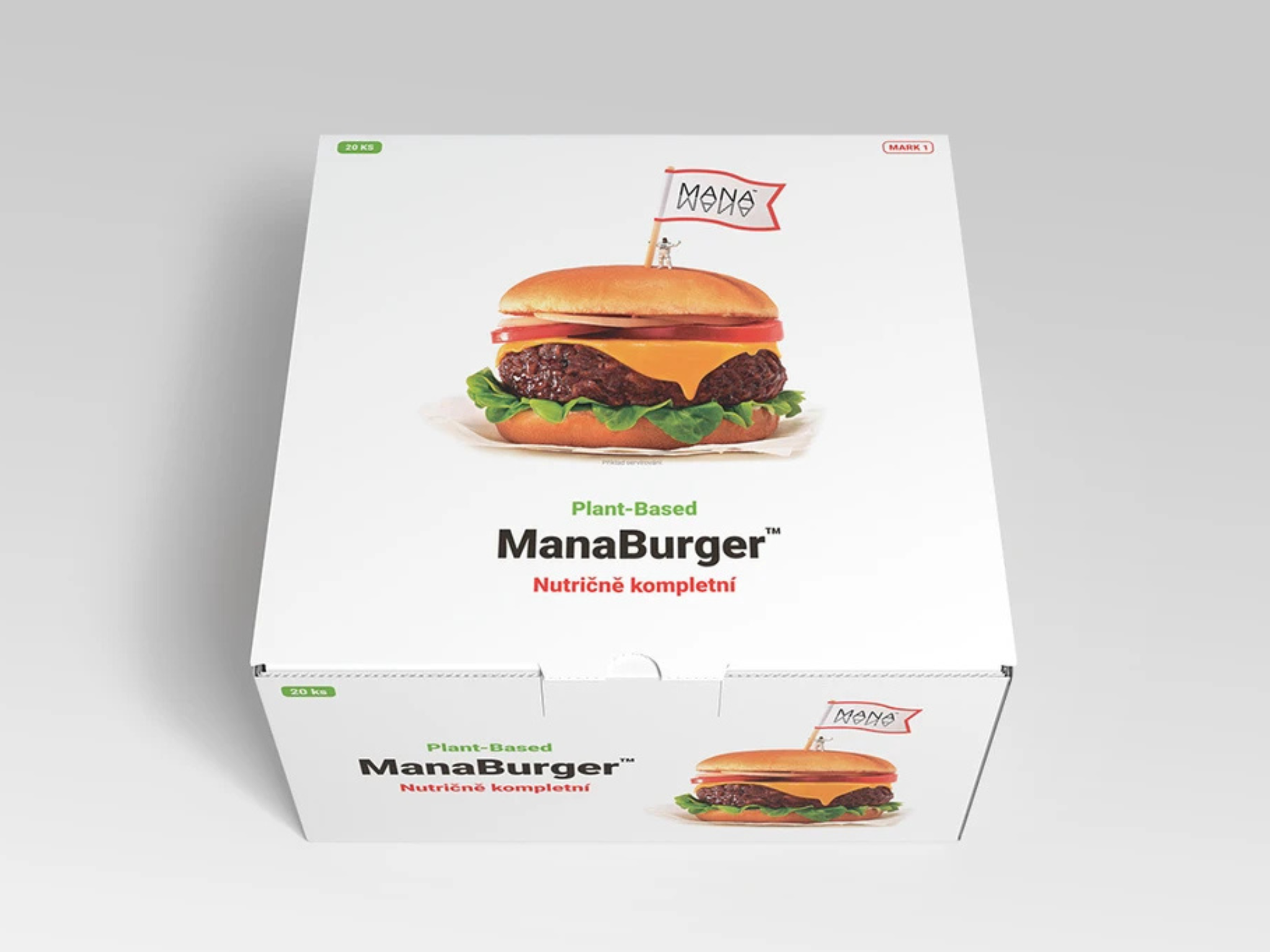Czech People Aren’t Confused by Meaty Terms on Plant-Based Products – So Why Is the Govt Banning Them?
6 Mins Read
Czechia is working on a law that would prohibit the use of meat-like labels on plant-based food packaging, despite public opposition to the move.
The government of Czechia is drawing up an amendment that would penalise plant-based meat makers from using terms like ‘soy sausages’, ‘mushroom schnitzels’ and even ‘bean burgers’.
The move, reminiscent of the ill-fated 2020 EU proposal to restrict such words on meat alternatives, is explained as a way to prevent misleading consumers – even though research shows that locals are far from confused.
Eight out of 10 Czech residents understand that a soy sausage is a plant-based product that doesn’t contain meat, while 69% are in favour of the continued use of meat-like terminology on vegan packaging, according to a 1,000-person YouGov poll conducted for ProVeg Czech Republic.
“The Czech Ministry of Agriculture presents the proposed decree as a means to protect consumers but the reality couldn’t be further from the truth. Familiar names like ‘vegan schnitzel’ or ‘soy sausage’ help people intuitively understand how to use these products and what to expect in terms of taste,” Lucia Milec, public affairs specialist at ProVeg Czech Republic, told Green Queen.
“The government is creating unnecessary obstacles for consumers and local producers, disregarding clear consumer preferences for clarity and practicality,” she added.
Rafael Pinto, policy manager at the European Vegetarian Union, told Green Queen: “The consumer data is quite clear all over the EU: consumers are not confused and buy these products intentionally. According to EU law, as long it’s clearly stated that its a plant-based product, it can be on the market. A restriction like this could severely affect free trade in the EU.”
Amendment ‘drastically interferes’ with plant-based market

The Ministry of Agriculture claimed that the changes won’t have any negative impacts on the business environment since they simplify labelling requirements and were proposed by food business operators in the first place.
Czech law requires the preparation of a regulatory impact assessment (RIA) for any legislation that will have potentially significant impacts on industries. In its explanation, the agriculture ministry said an RIA wasn’t needed for the labelling regulation.
But ProVeg argues that the decree changes the labelling requirements of an entire market segment, and so an RIA is a must. “The amendment to the decree, which the Ministry of Agriculture presents as protecting consumers and their information, in fact drastically and thoughtfully interferes with the market for plant-based products,” suggested Milec.
The rules would also favour overseas companies, which will remain unaffected. “This will not only increase prices for consumers, but also threaten the competitiveness of Czech companies in the European market. The Ministry of Agriculture should focus on supporting all food sectors, not just protecting the meat industry,” remarked Romana Nýdrle, trade director of the Czech Trade and Tourism Association.
She added that the regulation will disrupt the level playing field in the market and create unnecessary obstacles for local vegan companies, especially small- and medium-sized businesses.
Moreover, the Czech Agricultural and Food Inspection Authority hasn’t registered any complaints from locals about plant-based labelling being misleading – and in any case, the EU’s Food Information to Consumers legislation provides the public with sufficient protection against deception from businesses.
In the survey too, omnivores (making up 80% of respondents) were largely in favour of plant-based meat companies being allowed to use terms like ‘vegan burger’ and ‘tofu steak’, with 69% saying so.
Czech government accused of favouring ‘only meat companies’

ProVeg is calling on the agriculture ministry to abandon the labelling amendment, which it claims would make it “impossible to use understandable names” for plant-based alternatives. For example, in the rejected EU proposal from a few years ago, proponents of a ban suggested vegan companies could use words like ‘discs’ to describe burgers and ‘tubes’ for sausages.
Martin Ranninger, co-director of ProVeg Czech Republic, believes the ministry is “jumping on the animal lobby’s whistle” for a law that will harm local food companies. “This decree is in direct contradiction to the government’s programme statement, which promises to reduce the bureaucratic burden for companies and tradespeople,” he said.
“We cannot tolerate the interests of the animal industry being prioritised at the expense of innovative and sustainable plant-based alternatives,” he added.
Nýdrle echoes this sentiment, noting that the changes come from just one group of producers, and so were designed to benefit meat companies alone: “These proposals disproportionately favour one industry at the expense of plant-based products, which are growing in popularity.”
The YouGov survey found that while just 1% of the Czech population is vegan, 3% is vegetarian and – notably – 13% flexitarian. Another poll by the Good Food Institute, meanwhile, suggested that less than three in 10 Czech consumers were in favour of a similar labelling ban for cultivated meat.
Is the Czech ban even legal?

The Czech government has invested in these proteins, awarding €200,000 in grants to local cultivated pork startup Mewery, and the parliament last year hosted a seminar for alternative protein. But then again, it was part of an EU coalition that presented a case for further regulations against cultivated meat in an Agrifish Council meeting in January.
Speaking of which, the European Court of Justice (ECJ) rejected a similar proposed ban from France in October, deciding that no member state can prohibit companies from using these terms on vegan product packaging. The only way they can is by legally defining meat products and descriptive terms first, which is a lengthy and complex process.
He added: “It’s important to state that creating definitions of meat products could also impact these products since different countries may have different definitions. It can be a lose-lose-lose situation for consumers, plant-based producers and meat producers.”
If Czechia doesn’t protect these terms and still enforces the restrictions, it risks running foul of the ECJ. “If this non-sense proposal is approved in Czechia, it will then be submitted to a consultation procedure called TRIS, opened for at least three months, to all EU member states, institutions and stakeholders,” explained Pinto. “This process can then take several months or over a year of dialogues to ensure it doesn’t hinder the internal market.” If approved, the amendment is expected to take effect in July 2025.
“The decree may be legal at the national level, but it raises significant concerns regarding the principle of proportionality,” said Milec. As mentioned above, the ban only covers domestic producers, who will be forced to bear substantial costs to rename their products, redesign labelling and marketing, and invest in rebranding to meet the new requirements.
“Conversely, companies that relocate production to other EU countries without these restrictions can avoid these rules while continuing to sell their products in the Czech Republic,” she said.
“This is likely why other EU member states are not adopting similar legislation. Belgium, for instance, rejected a proposed guide in January 2024 that would have banned the use of ‘meaty’ names for plant-based products, as it ignored consumer needs and jeopardised the availability and promotion of such products.”



